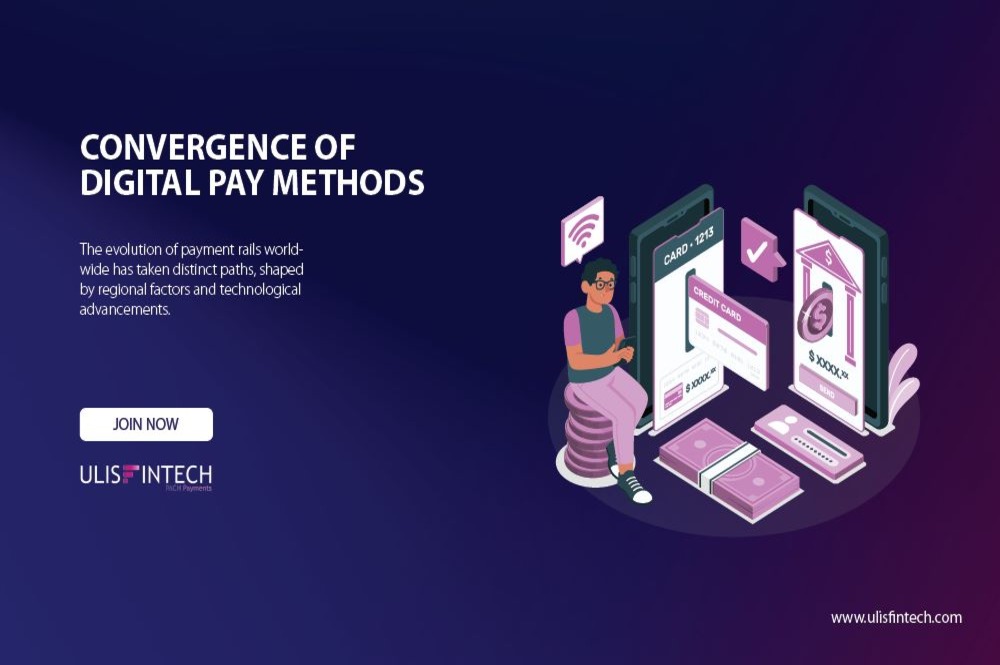Fintech 2021 Worldwide Practical Guidelines by Chambers
May 20, 2022 - 15 MINS READ

'Fintech 2021' Worldwide Practical Guidelines by Chambers
Kenya was ranked 63rd in the worldwide top 100 rankings of the world's major fintech hub nations in Africa in the 2020 Findexable Global Fintech Rankings report. Nairobi was designated the second largest fintech city hub in Africa among African cities. The presence of an estimated 20% of African fintech in Nairobi, a developing ecosystem of local investors, an enabling human resource climate, greater mobile phone penetration, and growing interest from global technology businesses are all factors contributing to these rankings.
The partnership between technology providers, traditional financial institutions, fintech start-ups, and regulators has been a key driver of the fintech revolution in Kenya, as has sustained market demand and an open-minded appetite for these types of solutions, as well as an enabling regulatory framework. Mobile Network Operators (MNOs) offering mobile money services and traditional financial institutions such as commercial banks are increasingly forming alliances and integrating their services. Payment solutions, money transfers, and credit access are the most common services supplied as a consequence of these collaborations. Commercial banks are able to contact the MNOs' large client bases in this fashion, while the MNOs gain by expanding their service offerings.
Digital credit solutions that employ credit-scoring algorithms and give credit through mobile payment systems have also seen tremendous development. Mobile payment technologies have been a crucial development driver for digital credit since they provide a route for digital credit providers to transmit monies to borrowers and borrowers to return the borrowed amounts. Both digital credit mobile applications and USSD platforms, as well as mobile payment systems, are used to perform credit transactions.
The COVID-19 epidemic has spawned new prospects for fintech product and service development, as well as increasing the use of fintech solutions. For example, on March 16, 2020, Kenya's Central Bank (CBK) announced emergency steps to encourage people to utilize mobile money instead of cash. Furthermore, the COVID-19 epidemic has boosted e-commerce activity, resulting in a rise in the usage of electronic payment methods.
Commercial companies and government institutions are exploring the implementation of fintech to improve their efficiency and service delivery as the mainstream use of fintech get pace in Kenya.
Business Models That Prevail
In Kenya in 2020, three major fintech business models emerged: digital banking and payment gateways.
- Banking on the Internet
In Kenya, the majority of banks have utilized digital platforms to deliver their goods and services. Customers can, among other things, access their bank accounts, check account information and statements, transfer cash, conduct foreign exchange operations, and pay utility bills. Certain banks have joined with mobile network operators to offer mobile banking services, allowing users to access their accounts via their phones and deposit and withdraw monies from their accounts via mobile money wallets.
- Gateways for Payments
Payment gateways are MNO systems that allow customers to pay merchants or merchants to pay each other for products and services. Integrated payment systems between merchants, banks, and other MNOs are provided through the platforms. MPESA, which is owned by Safaricom, is Kenya's most popular payment gateway. Banks have also formed alliances with credit card companies like Mastercard and Visa, which have helped to expedite electronic payments.
- Insurtech
Customers may check their policy details and premium statements, record and monitor claims, make service requests, and view service providers, among other things, on insurance firms' online portals. Digital platforms are being used by various insurance intermediaries to connect insurance firms, clients, agents, and other intermediaries.
Regulatory Framework
In Kenya, there is no separate regulatory framework for fintech, hence fintech products and services are governed by the current financial services regulatory system. Most fintech players are currently unregulated, and when they do offer regulated services or goods, they must adhere to the rules that apply to those services or products. However, the law is currently being revised to broaden the CBK's authority to cover fintech players such as digital credit and financial services providers.
The CBK, the Capital Markets Authority (CMA), and the Insurance Regulatory Authority are the primary regulators of the financial services industry. The Retirement Benefits Authority, the Sacco Societies Regulatory Authority, and the Kenya Competition Authority are among the several authorities that oversee certain areas of the market or activities related to them. The following law governs their respective mandates.
- Chapter 485A of the Capital Markets Act (and its rules) gives the CMA authority to oversee the capital markets and all public issuers of securities.
- The Banking Act (Chapter 488) governs Kenyan banks and banking operations.
- The CBK is established under the Central Bank of Kenya Act (Chapter 491), which also regulates banks and foreign exchange operations. A proposed Central Bank Amendment Bill, 2020, would enhance the CBK's regulatory power over digital financial goods and services, digital credit service providers, financial product providers, and the conduct of financial services if implemented in its current form.
- The National Payment System Act No. 39 of 2011 (and its rules), which regulates and authorises payment services and payment service providers (PSPs).
- The Insurance Regulatory Authority (IRA) is established under Chapter 487 of the Insurance Act (and its regulations), which regulates insurance services, insurers, and insurance intermediaries.
- The Retirement Benefits Authority (RBA) is established under the Retirement Benefits Act No. 3 of 1997 (and its rules), which regulates retirement benefit systems.
- The Consumer Protection Act No. 46 of 2012 (and its rules), which ensures consumer protection and prohibits unfair trade practises in consumer transactions.
- The Microfinance Act No. 19 of 2006, which governs microfinance organisations' licencing and regulation.
- The Sacco Societies Regulatory Authority was established by the Savings and Credit Cooperative (Sacco) Societies Act No 14 of 2008, which allows for the registration and regulation of Sacco Societies.
- The Competition Authority of Kenya (CAK) is established under the Competition Act (and regulations), which regulates competition and protects consumers from unfair and deceptive market practises.
- The Kenya Information and Communications Act No. 2 of 1998 (and its rules) established the Kenya Communications Authority and governs the information and communications industry.
Models of Compensation
There are no precise rules on how much compensation industry participants can charge their clients. Certain broad requirements, however, apply to individual players, such as:
Lenders are prohibited from charging borrowers default interest or prepayment penalties; lending institutions, insurance companies, and capital market intermediaries (brokers, investment advisers, fund managers, and dealers), as well as payment service providers, are required to disclose the full charges for their services, including fees, interest rate, penalties, premiums, and so on, prior to transactions (a borrower is not liable to pay any costs that have not been disclosed); and payment service providers are required to disclose the full charges for their services, including fees, interest.
Fintech and legacy players have different regulatory regimes.
The majority of fintech players are unregulated, but when they offer regulated services or goods, they must adhere to the rules that apply to those services or products. In most cases, new players would work with established players to guarantee compliance. However, other firms, particularly in the payment services industry, seek their own licenses. However, authorities and parliament have made steps to amend rules to reflect technological advancements, such as the Central Bank of Kenya Amendment Bill.
Regulatory Sandbox
The CMA built a regulatory sandbox to support the strengthening and expansion of Kenya's capital markets while also accelerating its grasp of innovative technologies. After the CMA has authorized an application to participate in the sandbox, along with the applicant's testing strategy, the product or service can be tested in Kenya. During the testing period, the CMA may ask that the testing plan be modified. Applicants must submit intermediate updates on the status of the tests and adhere to other regulatory requirements, such as safeguarding procedures, during the testing period.
Following the completion of the testing period, the CMA may either provide a license to the participant, allowing them to operate in Kenya, or deny and reject the participant's request for a license.
At this time, the CMA has approved seven applications for the sandbox, including:
Four Front Management Limited, which provides Robo-advisory services; Pyypl Group Limited, a blockchain-based platform for the issuance of debentures (unsecured bonds); Belgium Kenya Limited, which is blockchain-based and provides shareable Know Your Customer (e-KYC) solutions for financial markets intermediaries and investors; Central Depository and Settlement Corporation (CDSC), which provides a screen-based Securities Lending and Borrowing (SLB) platform.
Regulators' Jurisdiction
When more than one regulator has authority over an industry participant, each one controls them solely to the degree that they come within their jurisdiction. Listed banks, for example, are regulated by the CBK and the CMA, both of which are limited in extent by their respective statutory mandates. In 2.3 Compensation Models, you'll find the regulators' precise demands.
It is believed, however, that such authorities will take a cooperative approach. For example, the CMA has stated that negotiations are underway to build a multi-sector regulatory sandbox to handle innovations such as bitcoin and developing payment technologies, which are connected to capital markets but not exclusively so.
Regulated Functions Outsourcing
Although regulated services can be outsourced, most industries have limits on outsourcing. The Prudential Guidelines (Guideline on Outsourcing CBK/PG/16) of the Central Bank of Kenya, for example, prevent banks from outsourcing fundamental operations such as corporate strategy, management, and control. Furthermore, the standards provide that any material activity, such as IT, market research, or internal audits, must be authorized by the CBK before being outsourced. These recommendations were first published in 2013 and have yet to be revised to reflect recent industry changes.
Mandatory contractual criteria are outlined in the rules, including:
- a clear description of the delegated operations;
- the regulated entity's oversight mandate for the outsourced activities;
- CBK's right to monitor and inspect the third party's execution of the outsourced services;
- business continuity contingency plans; and pricing and fee structure information
A payment service provider (PSP) may outsource operational services under the National Payment System Regulations of 2014. Material operational activities, on the other hand, cannot be outsourced. A significant function is one that would materially compromise the PSP's continued compliance with the requirements of its license, financial performance, or soundness or continuity if a defect or performance failure occurred.
A PSP must notify the Central Bank of Kenya of any prospective outsourcing arrangements 30 days before they take effect.
The 2011 Capital Markets (Corporate Governance) (Market Intermediaries) Regulations provide that when market intermediaries hire third parties to perform tasks on their behalf, they must guarantee that:
- There is a contract detailing the services, and
- information about the third parties is supplied, including information about their credentials and expertise.
These Regulations further state that outsourcing does not relieve regulated organizations of their responsibility to fulfill their duties.
From a regulatory standpoint, market entrants will find it much simpler to partner with existing licensed institutions and supply their products or services as outsourced operations, for example, since this reduces regulatory scrutiny and complexity.
Significant Enforcement Measures
The following are the primary regulatory enforcement actions across the verticals:
- monetary penalties at the discretion of the regulator;
- a prohibition from continuing operations; suspension or revocation of licenses;
- termination of an officer's employment;
- a prohibition from expanding its services or restricting an entity's activities;
- and disqualification of directors from holding office in other licensed institutions.
Regulators may also bring legal action against regulated firms and/or their personnel who violate the statutes. In the event of a conviction, the courts may impose fines or jail sentences on the police involved. The length of imprisonment or the number of penalties varies according to the regime and is determined by the nature of the offense committed.
The Data Protection Act (DPA)
The Data Protection Act, 2019, governs the processing of personal data of Kenyan residents by data controllers and data processors. The Act governs the processing of personal data, establishes data subjects' rights, and specifies the duties of data controllers and data processors. Kenya has nominated its first Data Commissioner, who is now establishing the Data Commissioner's Office, as required by the Data Protection Act.







